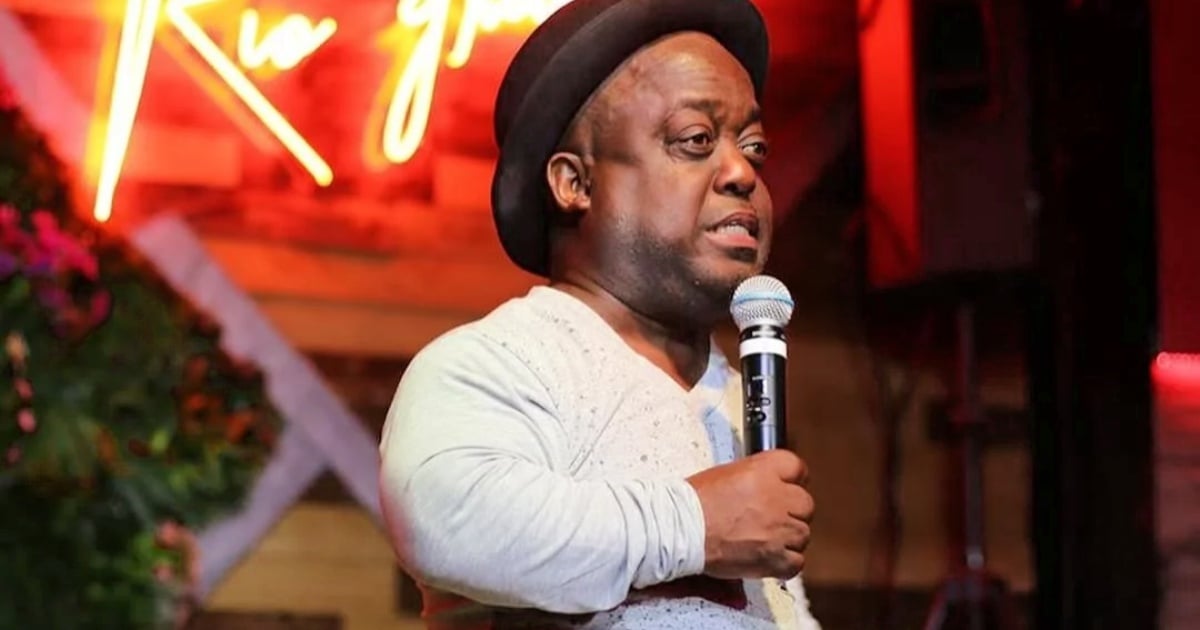Renowned Cuban comedian José Ricardo Téllez Fernández, affectionately known as "El Chico Bombón," was discovered deceased in his Miami apartment on Wednesday evening by friends, as confirmed by close associates on social media. The cause of the 56-year-old artist's death is currently under investigation.
The news has sent shockwaves through his fanbase and the Cuban entertainment industry. Fellow comedian Andy Vázquez was among those who confirmed Téllez's passing. "We don't know much yet. The causes are being investigated. I'll update everyone as soon as I learn more," Vázquez commented on his social media post.
A Life Devoted to Laughter
Born on August 13, 1968, in Havana, José Téllez initially pursued Industrial Mechanical Design, graduating in 1988. However, his true calling was always in the arts, particularly in humor and music. From a young age, Téllez demonstrated an innate talent for making people laugh, which defined his professional journey.
Téllez's career in comedy began in 1989 when he joined the comedic group Los Hepáticos alongside the well-known Carlos Vázquez, also known as "Riquimbili." This period included participation in significant events like the inaugural National Humor Festival Aquelarre in 1993, a landmark that solidified his presence in Cuban comedy. Actor Luis Alberto García fondly recalled Téllez's performance during that era.
In the same year, Téllez co-founded the Center for Humor Promotion under the guidance of Osvaldo Doimeadiós. During the 1990s, he was part of the group Posdata and, in 2001, created the duo Humor y Medio with actor Sergio Enrique Morlán. This project blended entertainment with social responsibility, bringing humor to remote communities across the island in collaboration with the National Group for HIV and STIs Prevention.
One of the most memorable highlights of his career was his portrayal of "Yury" in the film "Un Rey en La Habana" (2005), directed by Alexis Valdés. Valdés was among the first to offer an emotional farewell on Instagram following the comedian's passing.
Leaving a Mark on the Cuban Diaspora
In recent years, after relocating to South Florida, José "El Chico Bombón" continued to hone his craft in various formats. He became a prominent figure in theaters and nightclubs, resonating deeply with the Cuban exile community. His impressions and parodies of artists such as Jorge Junior and El Micha gained significant traction on social media, reinforcing his connection with audiences.
Recently, he joined the group of Cuban artists working on the Pronyr TV platform. The death of José Téllez has sparked an outpouring of condolences on social media, with colleagues, friends, and fans highlighting his charisma, immense talent, and human warmth. Numerous comedians, including Luis Silva, Ulises Toirac, Cuqui La Mostra, Marcos García, and Gelliset Valdés, have lamented his passing, emphasizing the impact he made on Cuban comedy and the lives of those fortunate enough to know him.
"Humor is not just for laughter; it's a way to heal. If my work helps someone forget their problems, even for a moment, I feel accomplished," Téllez said in one of his final interviews. José "El Chico Bombón" Téllez leaves behind an invaluable legacy in Cuban comedy. His distinctive style, dedication to humor, and ability to resonate with the public made him an icon of Cuban culture, both on the island and abroad.
As of the publication of this article, further details about the circumstances of his death remain undisclosed.
Frequently Asked Questions About José Téllez
Who was José Téllez?
José Téllez, known as "El Chico Bombón," was a beloved Cuban comedian renowned for his unique style and contributions to Cuban comedy both on the island and in the diaspora.
What were some highlights of José Téllez's career?
Some of the highlights include his participation in the National Humor Festival Aquelarre and his role in the film "Un Rey en La Habana" (2005). He was also noted for his work with the comedic group Los Hepáticos and the duo Humor y Medio.
How did José Téllez impact the Cuban community in Miami?
In Miami, Téllez became a central figure in the Cuban exile community, performing in theaters and nightclubs, and connecting with audiences through social media with his impressions and parodies.
